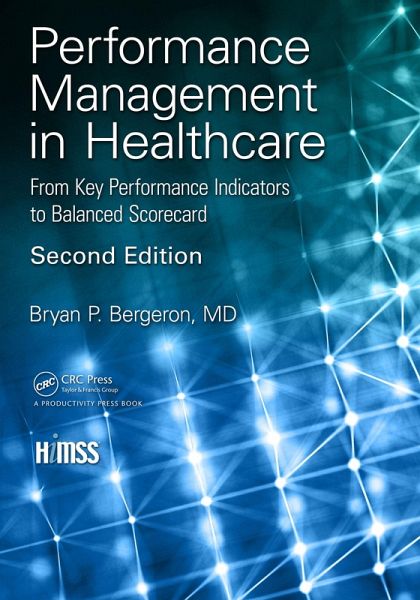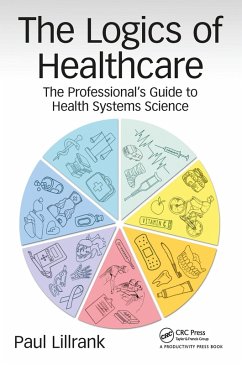
Performance Management in Healthcare (eBook, ePUB)
From Key Performance Indicators to Balanced Scorecard
Versandkostenfrei!
Sofort per Download lieferbar
60,95 €
inkl. MwSt.
Weitere Ausgaben:

PAYBACK Punkte
30 °P sammeln!
Performance management, often referred to as process management, is a strategy that can be used to achieve an optimum mix of quality, safety, patient satisfaction and solvency. The basis of performance management is the effective use of resources, as measured by quantifying processes and outcomes using key performance indicators (KPIs) - core measures that gauge the performance of an organization in particular areas. There is more to performance management than selecting a few KPIs from a list and feeding them into a graphical dashboard system. It's about behavior change, leadership, and visio...
Performance management, often referred to as process management, is a strategy that can be used to achieve an optimum mix of quality, safety, patient satisfaction and solvency. The basis of performance management is the effective use of resources, as measured by quantifying processes and outcomes using key performance indicators (KPIs) - core measures that gauge the performance of an organization in particular areas. There is more to performance management than selecting a few KPIs from a list and feeding them into a graphical dashboard system. It's about behavior change, leadership, and vision.
Written for administrators, clinical staff, process improvement managers and information technology personnel of healthcare organizations, this second edition provides the knowledge necessary to provide the leadership and vision for a performance measurement initiative. This practical resource provides a high-level review of the quality/safety initiatives in healthcare, describes the implementation process from an IT perspective, and offers high-level clinical, financial and cultural details. It features an extensive listing of clinical and non-clinical KPIs: a glossary including financial, medical, and operational terms; and appendices of organizations and sources of indicators and benchmarks.
Written for administrators, clinical staff, process improvement managers and information technology personnel of healthcare organizations, this second edition provides the knowledge necessary to provide the leadership and vision for a performance measurement initiative. This practical resource provides a high-level review of the quality/safety initiatives in healthcare, describes the implementation process from an IT perspective, and offers high-level clinical, financial and cultural details. It features an extensive listing of clinical and non-clinical KPIs: a glossary including financial, medical, and operational terms; and appendices of organizations and sources of indicators and benchmarks.
Dieser Download kann aus rechtlichen Gründen nur mit Rechnungsadresse in A, B, BG, CY, CZ, D, DK, EW, E, FIN, F, GR, HR, H, IRL, I, LT, L, LR, M, NL, PL, P, R, S, SLO, SK ausgeliefert werden.













